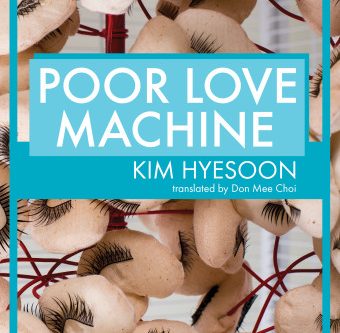 Novel by Dasa Drndic
Novel by Dasa Drndic
Translation by Celia Hawkesworth
Review by John Venegas
It is seductively easy to view humanity’s forward trek in time as story of progress. We look at the history of our species and construct narratives that make us feel good about ourselves, about our lot in life and the cost to get us there. By “we”, of course, I mean those of us in positions of privilege – those of us standing on the ashes of others. We pick and choose elements from stories of history that were already curated for the purpose of comfort, further rendering the delicious fat into something we can use to make everything else more palatable. But, worse than this, we violently reject anything that might disrupt our gluttonous meal, aggressively dismissing the bitter taste at best, even destroying the nuisance if we become sufficiently afraid.
As a person of privilege, I found Belladonna hard to swallow. It is a novel by Croatian author Dasa Drndic and it tells the story of Andreas Ban, a psychologist and author who seeks, above all else, escape. More than that, Belladonna is a withering, merciless examination of humanity’s existential relationship with history, one in which the burnt and bleeding remains of the victims are lain at our feet. Andreas, the novel’s protagonist, is a man dealing with partial dislocation – not a result of his circumstances but a thing of his own doing. Through his work, he has come to see the side of humanity that most of us like to pretend is not there or is only present in “bad” people, and he seeks comfort in the past. This fails, of course, because his eye, having been opened, cannot completely shut again.
That outer landscape, for Andreas a falsely real landscape, has sucked up, demolished, devoured his internal world,
This novel is not difficult because of its language, its structure, or its tone. As a matter of fact, all three of these facets, and several more besides, are incredibly beautiful. No, Belladonna is one of those rare novels that is truly demanding. The story is presented in such a way that it pulls you back to vigilance. The text is awash with details and minutia that, on a surface level, add an intense vividness to the immersion, but which also grab your chin and hold your gaze. It is a constant reminder that you are too easily distracted, that you cannot pretend your way to innocence, and that ignorance is no excuse. Moreover, the novel makes you aware that there are, and always will be, things that you do not know. There is always more information to discover, another perspective yet unaccounted for. The delivery of Andreas’ story and the stories that he sifts through are delivered in pieces, in fragments, all rich in detail but by their very existence and definition incomplete. The effect of reading this is dramatically potent, a reminder that the seeking of truth is an obligation without end.
Those others, those who had and still have a single-track life and a present without creases, arranged in drawers stupidly named “life”, in which there are neither wars nor displacements, in which weddings are all alike, just as funerals are, in which in fact there is no life, those people could not invite because they floated in their safe hatars where the lawns are soft and one’s steps springy, while he had fallen out of frame, hanging and swaying from a rusty hook and creating disorder. What would they talk about? What would they touch upon?
The flow of Belladonna is something in which you will lose yourself. Much of the novel is straightforward, matter of fact delivery that is trusting enough of its reader to infer the commentary being delivered in the description of events. But all the while this style builds in subtle intensity until the text can no longer stand the pressure and releases in amazing climaxes in which Drndic waxes poetic and unleashes sensations of long, elegant sentences that appeal to anyone with a taste for language. Further still, Drndic is beholden to no one in the path she takes to tell this story. The text does not care if you are impatient. In yet another beautiful echo of the novel’s message, the text will drag out the care and concern from you, if there is any to truly give. Belladonna is not a book for those of us with short attention spans or the inability to invest beyond a superficial level. This flow and style feel very important to the novel on multiple levels. First, they seem to be the one (perhaps unintentional) concession the text makes to the difficulty of its subject matter. There is an argument to be made that an uncomfortable truth finds better purchase when beautifully delivered. Second, they feel inherently respectful to the voices they help advocate for. Belladonna interrupts its prose in multiple instances to deliver extensive lists of the murdered, letters between characters, and pictures that provide yet more of the fragments of those that we have tried to forget. The care that was put into the construction of Belladonna is as much a tribute as any other memorial.
I do not speak Croatian, but given the masterclass in English on display, special acknowledgement should be given to Celia Hawkesworth, who has translated works from Drndic before. My understanding is that Drndic has an expert grasp of English and English literature, so to me it says something significant that Hawkesworth was asked to translate this work. The end product is a joy to read and seems to sacrifice none of Drndic’s characteristic visceral empathy.
It would be hard to find a novel more topically relevant today than Belladonna. We are surrounded by and tied to a rising tide of sexist, racist, fascist nationalism, whether we call the United States, Britain, Myanmar, or Palestine home. In an interview with the Paris Review, Drndic says that “Art cannot change the world, but it can change us. Art should shock, hurt, offend, intrigue, be a merciless critic of the merciless times we are not only witnessing but whose victims we have become. In this domain, the so-called intellectuals have enormously failed—by being silent, by committing treason,”. Belladonna is call to action, a blaring alarm to those of us who have been patting ourselves on the back because we supposedly dealt with the problem, to those of us who lie to ourselves and blame a few bad apples. It is the kind of novel that finds itself unfortunately essential, and brilliantly unquiet.
Belladonna will be available in October, thanks to New Directions.



